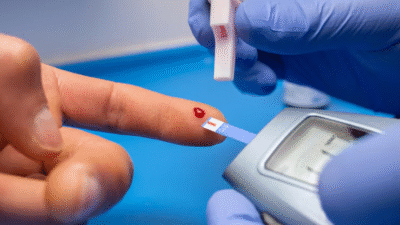
Meta Title & Description
Meta Title: PCOS 2025: Causes, Symptoms & Breakthrough Treatments
Meta Description: Discover the causes, signs, and latest treatments for PCOS in 2025. Learn how women can manage symptoms and boost fertility with proven tips.
Introduction
Polycystic Ovary Syndrome, or PCOS, continues to affect millions of women globally, but in 2025, new research, improved diagnostics, and innovative treatments are changing the game. If you’re experiencing irregular periods, unexpected weight gain, or stubborn acne, you might be dealing with PCOS — a hormonal disorder often misunderstood and overlooked. This comprehensive guide explores the PCOS causes 2025, early PCOS symptoms 2025, and the most breakthrough PCOS treatments available.
By the end of this article, you’ll understand how to detect, manage, and even reduce the impact of PCOS using cutting-edge science and lifestyle strategies.
What Is PCOS in 2025?
Polycystic Ovary Syndrome (PCOS) is a hormonal disorder that disrupts ovulation and leads to a range of metabolic, reproductive, and psychological symptoms. In 2025, the medical community better recognizes PCOS as a multi-system condition, not just a reproductive issue.
Key Statistics (2025 Update):
- PCOS affects nearly 1 in 7 women of reproductive age.
- Up to 70% of PCOS cases remain undiagnosed.
- A major link is now confirmed between PCOS and insulin resistance, even in non-obese women.
PCOS Causes 2025: What We Know Now
Thanks to new PCOS research 2025, scientists now better understand what contributes to the condition:
1. Genetic Predisposition
- Family history remains a strong factor.
2. Hormonal Imbalance
- Elevated androgens disrupt ovulation and increase symptoms like acne and hair growth.
3. Insulin Resistance
- Over 80% of women with PCOS have insulin resistance, even if not overweight.
4. Environmental Triggers
- Exposure to endocrine disruptors and processed foods may influence onset.
5. Inflammation
- Low-grade inflammation contributes to hormone dysregulation and insulin resistance.
PCOS Symptoms 2025: What to Watch For
Recognizing the signs of PCOS early can significantly impact treatment outcomes.
Common Symptoms:
- Irregular or missed periods
- Weight gain or difficulty losing weight
- Excess facial or body hair (hirsutism)
- Persistent acne or oily skin
- Thinning hair on scalp
- Dark skin patches (acanthosis nigricans)
- Mood swings or depression
- Difficulty conceiving
🔍 Pro Tip: A combination of two or more symptoms often indicates PCOS. Keep a symptom diary and consult a doctor for early intervention.
For more detailed information on PCOS causes, symptoms, and management, trusted sources like the Centers for Disease Control and Prevention (CDC) and the National Institutes of Health (NIH) provide comprehensive overviews and updates on the latest research. If you’re concerned about fertility issues related to PCOS, the American Society for Reproductive Medicine (ASRM) offers expert guidance and treatment options. For those interested in natural management strategies, the Mayo Clinic outlines science-backed lifestyle tips that can help improve symptoms. Additionally, the Endocrine Society provides valuable insights into the hormonal imbalances underlying PCOS, helping patients better understand their condition.
PCOS Diagnosis 2025: Modern Tools & Criteria

How Is PCOS Diagnosed in 2025?
Doctors now follow updated Rotterdam Criteria, but they combine it with newer tools like:
- Ultrasound Imaging: Detects ovarian cysts or increased ovarian volume.
- Hormonal Blood Tests: Measures LH, FSH, testosterone, and insulin.
- AI-Based Symptom Scoring Tools: Some clinics now use AI to assess risk factors and predict PCOS likelihood.
Breakthrough PCOS Treatments 2025
1. Personalized Medication Protocols
- Metformin 2.0: Newer versions improve insulin sensitivity with fewer GI side effects.
- Inositol Blends: Myo-inositol + D-chiro-inositol combinations show strong results in regulating cycles.
- GLP-1 Agonists: Originally for diabetes, now helping PCOS patients lose weight and regulate glucose.
2. Nutrigenomics & PCOS
- DNA-based diet recommendations help women follow plans tailored to their metabolism.
3. Hormonal Regulation Therapies
- Safer birth control options with low androgenic effects.
- Anti-androgens with fewer long-term risks.
4. Alternative & Natural Approaches
- Acupuncture: Shown to regulate hormones and relieve stress.
- Herbal Medicine: Spearmint, licorice root, and berberine for symptom relief.
How to Manage PCOS in 2025: Lifestyle & Habits
1. Dietary Choices
- Focus on low-GI, high-fiber foods.
- Include anti-inflammatory meals with omega-3s, leafy greens, and lean proteins.
2. Exercise Plans
- HIIT workouts improve insulin sensitivity.
- Yoga & Strength Training support hormonal balance.
3. Mental Health Matters
- Women with PCOS are at higher risk for anxiety and depression.
- 2025 sees more focus on holistic care including therapy, meditation, and support groups.
PCOS and Fertility in 2025
What’s New in Fertility Treatment?
- Ovulation Induction: Letrozole continues to outperform Clomid.
- IVF Enhancements: AI-assisted embryo selection and hormone tracking improve success rates.
- Cycle Monitoring Apps: Smart wearables detect ovulation signs in real-time.
Treating PCOS Naturally in 2025
While not a cure, natural remedies can complement medical treatments:
- Cinnamon for blood sugar regulation
- Zinc and magnesium for hormonal balance
- Intermittent fasting (under supervision)
⚠️ Always consult a medical expert before starting supplements.
What’s New in 2025: Emerging Research & Trends
- Gut Health & PCOS: A disrupted microbiome is now linked to PCOS inflammation.
- AI in Women’s Health: Personalized health plans powered by wearable devices and apps.
- Telemedicine Clinics: Specialized PCOS care is now more accessible online.
Pros & Cons of PCOS Treatment Options (Comparison Table)
| Treatment Type | Pros | Cons |
|---|---|---|
| Metformin | Improves insulin sensitivity | GI upset, requires long-term use |
| Inositol Supplements | Natural, supports cycle regularity | Slow to act, variable response |
| Hormonal Birth Control | Regulates cycles, reduces acne | Can mask symptoms, risk of side effects |
| Herbal Remedies | Fewer side effects, holistic benefits | Less regulated, mixed evidence |
| Lifestyle Changes | Long-term results, overall health boost | Requires discipline, slower effects |
FAQs About PCOS 2025
Q1: Can PCOS go away permanently?
PCOS is a chronic condition, but symptoms can be managed or reversed with consistent treatment and lifestyle changes. Some women may experience normal cycles with weight loss and insulin regulation, but relapse is possible if triggers return.
Q2: Is weight gain inevitable with PCOS?
Not necessarily. While many women with PCOS struggle with weight due to insulin resistance, targeted lifestyle changes and medications can help maintain a healthy weight.
Q3: What is the most effective treatment for PCOS in 2025?
A combination approach is best — using medication like metformin or inositol, tailored diets, exercise, and mental health support. There’s no one-size-fits-all treatment.
Q4: Can PCOS affect mental health?
Yes. Anxiety, depression, and body image issues are common. More providers now include mental health screenings as part of PCOS care in 2025.
Q5: Can you get pregnant naturally with PCOS?
Many women do conceive naturally, especially with lifestyle adjustments. However, fertility treatments may be needed in more severe cases.
Q6: Are there any new supplements for PCOS in 2025?
Yes. Blends containing inositol, berberine, NAC, and chromium are trending for blood sugar and hormone regulation. Always verify product quality.
Conclusion
PCOS in 2025 isn’t the mystery it once was. Thanks to emerging science and awareness, women now have more power than ever to understand, diagnose, and treat this complex condition. Whether you’re newly diagnosed or managing long-term symptoms, today’s knowledge and technology offer real hope.




